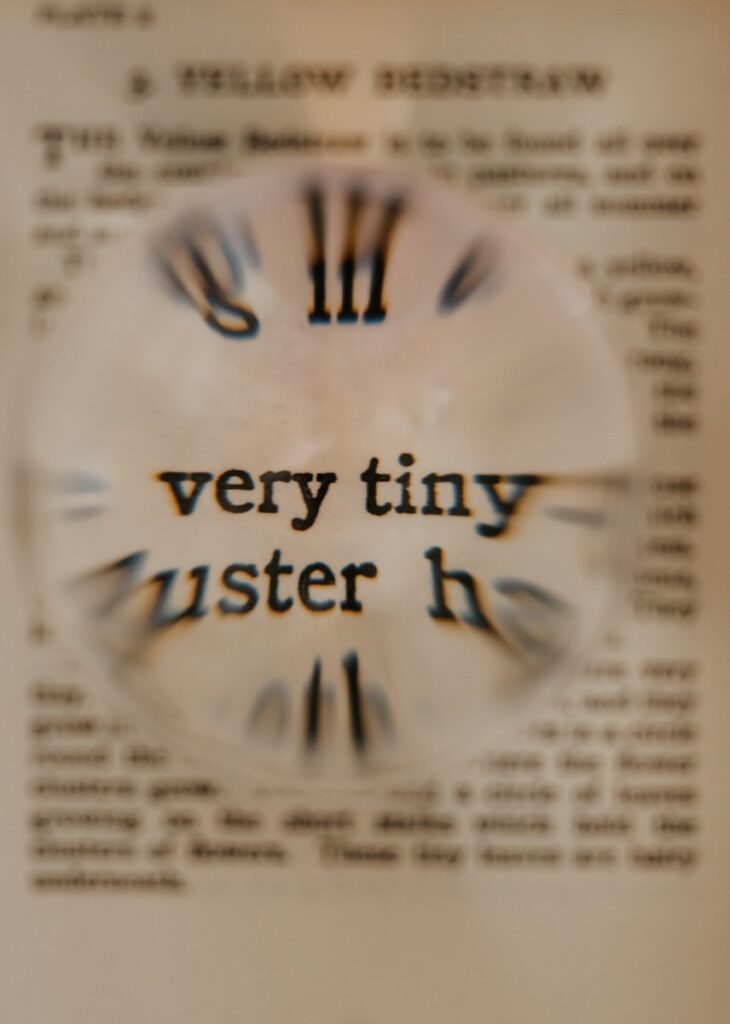How Do You Say Minor in Spanish? Tips and Common Mistakes
Ever found yourself in a bustling Spanish market, trying to explain that you’re just looking for a minor detail, but all you get are puzzled looks? It’s like trying to find a needle in a haystack. You know you’re close, but something’s missing. Maybe you’ve got the major phrases down, but those little words still trip you up.
Imagine this: You’re at a café in Madrid, and you want to tell the barista that you’d like a minor change to your order. You scramble for the right word, but it feels like you’re piecing together a jigsaw puzzle without the picture on the box. Don’t worry, you’re not alone.
The Basic Translation: “Menor” in Spanish

Wondering how to say “minor” in Spanish? The word you’re looking for is menor. It’s versatile, cropping up in various scenarios beyond just age-related contexts.
Definition and Pronunciation of “menor”
Menor is Spanish for “minor” and pronounced as /ˈmaɪnər/. Easy enough, right? But there’s more to it. Whether chatting with friends or reading Spanish literature, you’ll find menor pops up quite often.
Usage in Different Contexts
Menor isn’t limited to just one meaning. It’s used in different contexts, making Spanish both flexible and interesting.
In age-related contexts, menor identifies someone younger. For instance, you might say:
Picture sitting at a family dinner in Seville, chatting about siblings. Using menor helps specify who’s younger, making conversations clearer and more relatable.
General context for “lesser” or “smaller”
Menor also means “less,” “smaller,” or “fewer.” This comes in handy in various day-to-day situations, like when shopping or discussing quantities:
Imagine being in a bustling Madrid market, trying to buy fewer oranges. Saying menor cantidad de naranjas ensures you get just what you need without any mix-up.
Common Phrases Using “menor”
Let’s wrap this up with everyday phrases using menor. This will make you sound more natural and fluent in Spanish conversations.
To sum up the information neatly:
Context | Spanish Phrase | English Translation |
|---|---|---|
Family | Hermano menor | Younger Brother |
Family | Hermana menor | Younger Sister |
Family | Hija menor | Younger Daughter |
Family | Hijo menor | Younger Son |
Quantity | Menor cantidad | Less Quantity |
Size | Menor tamaño | Smaller Size |
Frequency | Menor frecuencia | Less Frequency |
Business | Comerciante al por menor | Retailer |
Business | Comercio al por menor | Retail Trade |
Understanding menor goes beyond memorizing its English equivalent. It’s about knowing when and how to use it, making your Spanish conversations smoother and richer.
Age-Related Usage: “Menor de edad”
When referring to age in Spanish, the term menor de edad is used to describe someone under the legal age of majority. This isn’t just a linguistic detail; understanding nuances can greatly affect how you communicate, especially in legal or formal contexts.
Meaning and Literal Translation
Menor de edad literally translates to “minor of age,” indicating someone who hasn’t reached adulthood. You might be asking, why is this important? Imagine discussing age-sensitive topics or filling out forms in a Spanish-speaking country. Knowing the exact term can help avoid misunderstandings and make interactions smoother.
Legal Implications in Spanish-speaking Countries
Menor de edad carries significant legal weight. For many situations, knowing the right term ensures the conversation is accurate and respectful. Whether you’re discussing age limits for certain activities or legal responsibilities, menor de edad keeps the dialogue clear.
Age of Majority Variations
The age of majority, when one transitions from menor de edad to adult status, varies across Spanish-speaking countries. In most cases, it is 18 years old.
Country | Age of Majority |
|---|---|
Spain | 18 years old |
Mexico | 18 years old |
Argentina | 18 years old |
Peru | 18 years old |
Knowing these variations can be crucial. For instance, if you’re planning to live, work, or study in a Spanish-speaking country, understanding these age limits helps you navigate their legal systems better.
Rights and Restrictions for “Menores de Edad”
Menores de edad have specific rights and restrictions different from adults. For example, they can’t enter into certain contracts or vote. But, they do have rights related to education, health, and welfare.
Cultural Considerations When Referring to Minors
Referring to someone as a menor de edad than as just menor can show respect and clarity. It’s not just about being correct but also about being culturally sensitive. When in doubt, choosing the full term shows an understanding and respect for local customs and legal frameworks. This gesture can be vital in professional settings, educational environments, or even social gatherings.
Understanding and using menor de edad effectively bridges the gap between correct language usage and cultural respect.
Academic Context: “Asignatura secundaria” or “Especialización menor”
Ever wonder how to convey the concept of a minor in Spanish? Let’s jump into what it means in an academic setting, specifically asignatura secundaria and especialización menor.
Translating “Minor” in Educational Settings
In educational contexts, translating “minor” in Spanish can be tricky. A minor usually complements your major, adding depth to your studies. When speaking Spanish, you can use asignatura secundaria to describe this secondary field of study. For instance, “I’m studying Psychology with a minor in Literature” translates to “Estudio Psicología con una asignatura secundaria de Literatura.”
You might also hear especialización menor. This term emphasizes a secondary area of focus within a field. It’s used to highlight specialized knowledge in a particular subject without sidestepping your major.
Differences Between Spanish and English Academic Systems
Spanish academic systems don’t directly equate to the U.S. concept of a minor. While U.S. students often supplement their major with a minor, Spanish curricula focus intensively on a single field. This creates a more streamlined but less diversified academic experience.
Consider if you were studying Business in the U.S. and picked up a minor in Marketing. In Spain, you’d primarily study Business, with elective courses sprinkled in, without an official “minor” designation. The streamlined approach might limit breadth but fosters deep-field expertise.
How to Discuss Your Academic Minor in Spanish
When discussing your minor in Spanish conversations, preparation helps. Begin with your major, then smoothly introduce your minor using asignatura secundaria or especialización menor. For example, “I’m pursuing Engineering with a minor in Computer Science” becomes “Estudio Ingeniería con una asignatura secundaria de Ciencias de la Computación.”
Here’s a quick reference:
English Sentence | Spanish Translation |
|---|---|
“I’m studying Biology with a minor in Environmental Science” | “Estudio Biología con una asignatura secundaria de Ciencias Ambientales” |
“My major is Economics, and I have a minor in Statistics” | “Mi carrera es Economía, y tengo una especialización menor en Estadísticas” |
These translations ensure clear communication of your educational achievements. Use these terms confidently to bridge any language gaps, making your academic narrative accessible in both Spanish and English contexts.
Other Contextual Translations of “Minor”

Translating “minor” in Spanish varies based on the context. Whether it’s legal, musical, sports, or business, the term takes on specific meanings. Let’s jump into these nuances to help you communicate your ideas clearly.
Legal Context: “Delito Menor” (Minor Offense)
In legal settings, delito menor is the Spanish term for “minor offense.” This refers to less serious crimes, usually resulting in lighter penalties. For instance, shoplifting a low-value item would be considered a delito menor. This term is important to distinguish from more severe crimes, ensuring accurate communication in legal situations. Have you ever wondered how minor offenses differ across cultures? Understanding these terms helps bridge that gap.
Music Context: “Escala Menor” (Minor Scale)
In music, the term “minor” translates to escala menor. If you’re discussing a song’s tonal quality or teaching music theory, you’ll encounter this term. An escala menor generally conveys a sadder, more somber mood compared to a major scale. Think about how the haunting melody of Beethoven’s “Moonlight Sonata” influences your emotions—it’s all about the escala menor.
Sports Context: “Ligas Menores” (Minor Leagues)
In sports, particularly baseball, ligas menores means “minor leagues.” These are developmental leagues where players refine their skills before potentially moving to major leagues. Imagine the journey of a young athlete, working hard in the ligas menores to achieve their dream of playing in the majors. It’s a term packed with aspirations and hard work.
In the business world, a minor shareholder translates to accionista minoritario in Spanish. This term refers to someone who owns a smaller portion of a company’s shares. While an accionista minoritario might not influence major decisions, their role is vital in the corporate ecosystem. Curious about investor roles? Understanding this term can provide insights into shareholder dynamics.
Context | Spanish Term | English Translation |
|---|---|---|
Legal | Delito menor | Minor offense |
Music | Escala menor | Minor scale |
Sports | Ligas menores | Minor leagues |
Business | Accionista minoritario | Minor shareholder |
Understanding these translations helps you communicate more effectively across different fields, enhancing your Spanish vocabulary in meaningful ways.
Grammar Tips for Using “Menor” in Spanish

Exploring Spanish grammar can be tricky, but with a bit of practice, you’ll master the term menor in no time. Here’s a breakdown to help you understand how to use it effectively.
Adjective Agreement with Gender and Number
Did you know adjectives in Spanish change to agree with the nouns they describe? Menor is no exception. Here’s how you can use it correctly:
Adapting menor according to the noun helps clarify meaning and ensures grammatical accuracy.
Comparative and Superlative Forms
When comparing, simple forms of menor come into play. For instance, you may say “Es menor que su hermano” (He is younger than his brother). Here’s a quick look:
Using comparatives and superlatives effectively enriches your conversations.
Position of “Menor” in Sentences
Where does menor fit in sentences? Unlike some English adjectives that can float around a sentence, menor usually sticks close to the noun it describes. Here’s a few scenarios:
Knowing the positioning can help avoid common grammar pitfalls.
Examples in Different Contexts
Adding menor to your vocabulary is practical across various contexts. Here’s a handy table with examples:
Context | Term | Example |
|---|---|---|
Education | asignatura secundaria | “Estudia una asignatura secundaria en arte” (She studies a minor in art) |
Music | clave menor | “La canción está en una clave menor” (The song is in a minor key) |
Sports | ligas menores | “Juega en las ligas menores” (He plays in the minor leagues) |
Legal | el menor | “El menor no puede votar” (The minor cannot vote) |
Mastering these placements ensures your Spanish is both accurate and nuanced.
Start incorporating menor in conversations, and you’ll see your Spanish skills blossom. Why not investigate into these examples and practice them today?
Common Mistakes to Avoid

Understanding how to say “minor” in Spanish might seem straightforward, but a few common pitfalls could trip you up. Let’s jump into some key areas where errors often arise and how you can avoid them.
False Cognates and Misinterpretations
It’s easy to mix up words when they look similar but mean different things. Take menor for instance. While this word translates to “minor,” it can also mean “younger.” Imagine you’re describing your younger sibling, you’d say mi hermano menor—totally different from un incidente menor which means “a minor incident.”
Example:
Contextual Errors When Using “Menor”
Context is king, especially in Spanish. If you say un menor, you’re talking about a child or someone who is legally a minor. But if you say un incidente menor, you’re talking about a minor incident. The context gives the term its meaning, and mixing them up can lead to awkward, sometimes embarrassing mistakes.
Example:
Grammatical Mistakes to Watch Out For
Spanish grammar can be tricky. For menor to agree with the noun it describes, you must match it in both gender and number. For example, “the minor incidents” would be los incidentes menores, while “the minor problem” would be el problema menor.
Examples:
English Phrase | Correct Spanish Translation |
|---|---|
A minor incident | Un incidente menor |
The younger sister | La hermana menor |
Studying Spanish as a minor | Estudiar español como asignatura secundaria |
The minor decisions | Las decisiones menores |
Conclusion: Mastering “Minor” in Spanish
Understanding how to use “menor” correctly can make a big difference in your Spanish communication skills. By avoiding common mistakes and paying attention to context, you’ll be able to express minor details accurately and confidently.
Remember language is all about nuance. Taking the time to master these subtleties not only enriches your vocabulary but also helps you connect more effectively with Spanish speakers. Keep practicing and don’t be afraid to make mistakes; it’s all part of the learning process.
Happy learning, and enjoy your journey to mastering Spanish!
Frequently Asked Questions
What does “menor” mean in legal contexts?
In legal contexts, “menor” typically refers to a minor, someone under the age of legal adulthood, usually under 18 years old. It can also imply lesser severity in legal charges or penalties.
How is “menor” used in academic settings?
In academic contexts, “menor” denotes a secondary field of study or a minor subject, much like in U.S. universities where students pursue a major and a minor.
What are common mistakes with “menor” in Spanish?
Common mistakes include confusing “menor” with false cognates like “minor” in English, or using it incorrectly in contexts where “pequeño” or “inferior” would be more appropriate.
How can I avoid mistakes with “menor” in Spanish?
To avoid mistakes, focus on context. Use “menor” for age-related references or secondary academic subjects, and ensure you understand the specific nuances in legal and academic terms.
Why is understanding the word “menor” important?
Mastering the nuances of “menor” enhances communication in legal, academic, and everyday contexts, preventing misunderstandings and enriching your Spanish vocabulary.
Can “menor” refer to things other than age or academics?
Yes, “menor” can also imply something lesser in importance or severity, such as in phrases like “un problema menor” (a minor issue).





